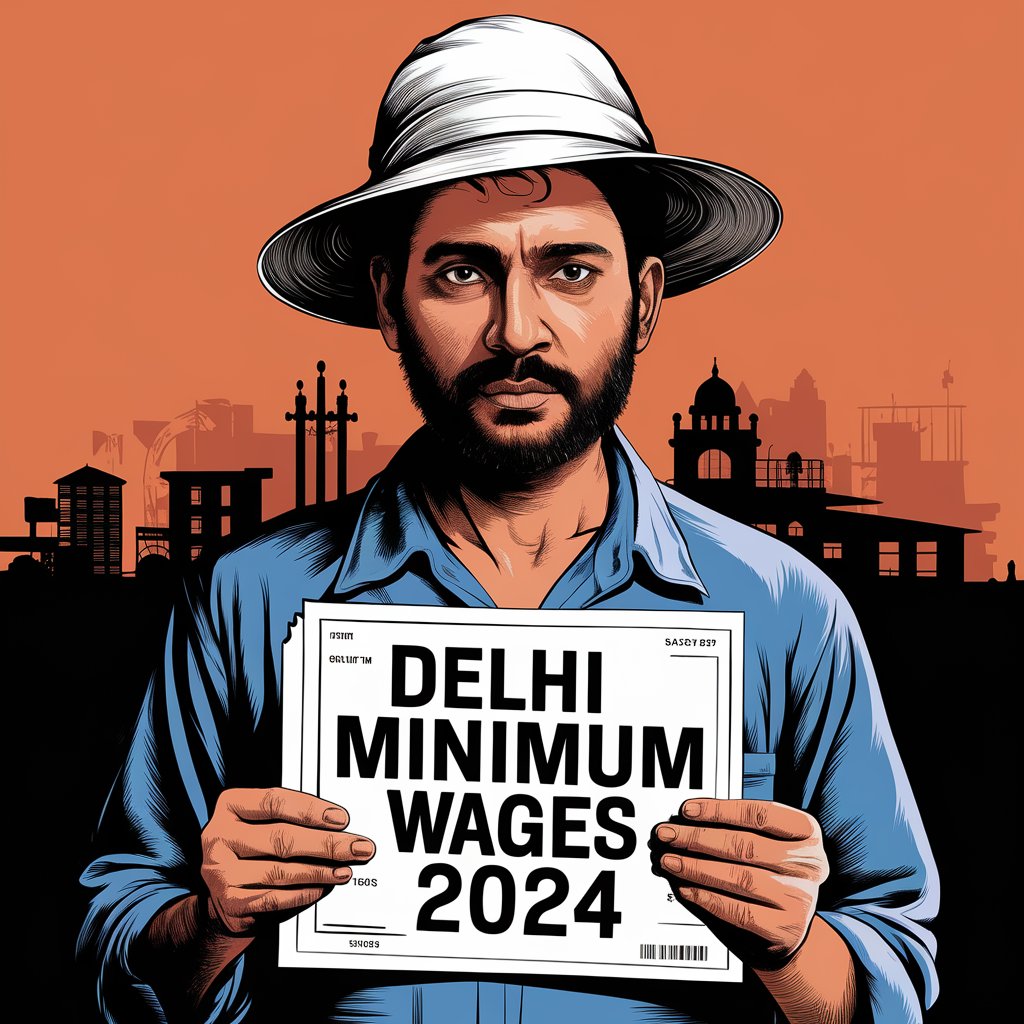Understanding Delhi Minimum Wages 2024: What You Need To Know

In 2024, the minimum wage structure in Delhi continues to evolve, reflecting the government’s efforts to provide a fair living standard for workers in various sectors. With the cost of living in the capital constantly rising, adjusting minimum wages is crucial for workers’ well-being and economic stability. In this blog, we will explore the important aspects of the Delhi minimum wages 2024, including the revised rates, the sectors they affect, and the broader implications for both employers and employees.
What Are Minimum Wages?
Minimum wages are the legally mandated minimum amounts that employers must pay their workers for a set period of work, usually measured in daily, weekly, or monthly rates. These wages are designed to ensure that employees can maintain a basic standard of living and protect them from exploitation. The Delhi minimum wages 2024 have been set by the Delhi government under the Minimum Wages Act, which is revised periodically to adjust for inflation and the cost of living in the city.
Categories of Workers Under Minimum Wages
The Delhi minimum wages 2024 are categorized based on the skill level of workers. This division helps tailor the wage rates to specific job requirements and responsibilities. The key categories include:
- Unskilled Workers
Unskilled workers perform tasks that require no formal training or specialized skills. These jobs typically involve manual labor, such as helpers, cleaners, or construction site workers. The 2024 minimum wage for unskilled workers in Delhi has been updated to reflect inflation and living expenses in the capital. - Semi-Skilled Workers
Semi-skilled workers possess some level of training or experience but may not require extensive education. Jobs in this category include drivers, security guards, and electricians. The Delhi minimum wages 2024 for semi-skilled workers take into account the additional responsibilities and expertise required in these roles. - Skilled Workers
Skilled workers have received formal training or possess advanced knowledge in their respective fields. This category includes technicians, mechanics, carpenters, and IT professionals. The 2024 minimum wage for skilled workers in Delhi is designed to reflect the higher demand for their specialized skills. - Highly Skilled Workers
This category includes workers with advanced technical skills or qualifications, such as engineers, accountants, and senior management roles. The Delhi minimum wages 2024 for highly skilled workers are significantly higher, reflecting the expertise and responsibility these roles entail.
Revised Delhi Minimum Wages for 2024
The Delhi government revises minimum wages every six months, taking into account inflation and other economic factors. For 2024, the revised wage rates include adjustments for all categories of workers, ensuring that they can cope with the rising cost of living in the city.
Here are the approximate revised wage rates for 2024:
- Unskilled Workers: ₹18,500 per month
- Semi-Skilled Workers: ₹20,000 per month
- Skilled Workers: ₹22,000 per month
- Highly Skilled Workers: ₹24,500 per month
It is important to note that these figures are approximate and subject to change based on inflationary trends or further governmental revisions. The updated rates have been designed to ensure that workers can afford basic necessities such as housing, food, healthcare, and transportation.
Impact on Employers
For employers, the revised Delhi minimum wages 2024 represent an important obligation to comply with labor laws. Businesses that fail to meet these minimum wage requirements may face legal penalties, including fines or even criminal prosecution in severe cases. Employers need to factor in these updated wage rates when budgeting for labor costs to avoid non-compliance.
Additionally, organizations may need to reassess their compensation packages to remain competitive in the market. Offering only the minimum wage may lead to higher turnover rates as skilled employees seek better-paying opportunities elsewhere.
Impact on Workers
For workers, the Delhi minimum wages 2024 provide a sense of financial security by guaranteeing a baseline income. However, despite the periodic wage revisions, there are still concerns that the minimum wage may not adequately cover the rising cost of living in an expensive city like Delhi. Workers in sectors like construction, retail, and domestic services rely heavily on these adjustments to maintain their standard of living.
While the increase in minimum wages offers relief, many workers and labor unions continue to advocate for more substantial hikes to address the widening gap between wages and living costs. In the long term, these efforts may result in further upward revisions of minimum wages to reflect the true economic conditions in the capital.
Conclusion
The Delhi minimum wages 2024 mark an essential step in the ongoing effort to provide fair compensation for workers in the capital. As the cost of living continues to rise, periodic revisions ensure that workers can maintain a decent standard of living, while employers remain compliant with labor laws. Understanding these changes is crucial for both businesses and workers, as they navigate the economic landscape of one of India’s most dynamic cities.
With further revisions expected in the coming years, the balance between fair wages and economic sustainability will remain a key focus for policymakers in Delhi.


